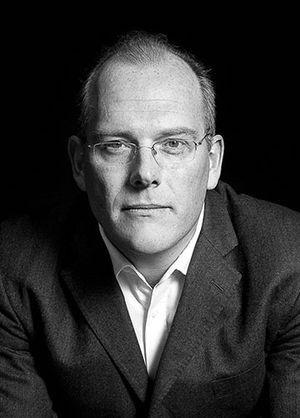
About Matthew Dunn:
I was an MI6 field operative who spent many years travelling around the world to confront matters pertaining to the national security of Great Britain and its allies. The work was extremely complex and fraught. I retired from MI6 a decade ago and became a published author. I now have fourteen books to my name, including the “Spycatcher” series and “Ben Sign” series. My latest book The Spy Thief has just been published, exclusive to Amazon in e-book and paperback format.
What inspires you to write?
For my latest novel The Spy Thief, my inspiration came from a photograph my father took in London in 1965. I’ve had the photo for years and always thought it would make a great shot for the cover of one of my books. But I needed to match cover to story. The two finally married. The result is The Spy Thief.
In broader terms I’m inspired by my curiosity, different way of looking at the world, innate imagination, adventurous spirit, and a treasure-trove of memories.
What authors do you read when you aren’t writing?
Those who have verve, curiosity, an adventurous spirit, a high-functioning cerebral output, and an overwhelming distaste for mundanity.
Sometimes I think it would be fun to swing by the local pub and have a beer with Joseph Conrad, Sir Arthur Conan Doyle, John le Carre, Frederick Forsyth, Alan Furst, Jeffrey Deaver, and Thomas Harris. I suspect they share my always-looking-over-the-horizon mindset. Then again, maybe that wouldn’t work. Us authors don’t like being in packs. One-to-ones are better. Perhaps I’ll invite Conan Doyle to lunch at Simpson’s On The Strand? Maybe Forsyth would like to accompany me for a spot of fly fishing on the Itchen? I’ll put some thought on what to do with the rest of the chaps.
Tell us about your writing process.
My writing projects always start with me doing a two/three page outline of my story. I do it in bullet-point form and ensure the story has a beginning, middle, and an end. Then I stress-test the outline – looking for flaws, holes, weaknesses in logic. Getting the outline right can take a week or longer. For me it’s the most vital part of the project. When I’m satisfied it’s bullet-proof, I start writing the book.
The outline, or synopsis, is my chart. Without it I’d be aimless and rudderless. But in the course of writing the book, if there’s a compelling shift in wind direction, I allow myself flexibility to change course.
I don’t create character sketches. My characters – male, female, young, old, tall, short, etc – all have slithers or swathes of me in them. They inhabit my consciousness.
In terms of writing kit, I use a laptop to write the book and other associated note documents, and I keep a large notepad and pen adjacent to my computer. And I’ll use my phone to Web search certain research topics, or to email myself if I’m out doing something like buying a sack of spuds in a supermarket and a book thought suddenly enters my head.
For Fiction Writers: Do you listen (or talk to) to your characters?
Ha ha, no. But, when two or more characters are talking I’m not just in the same room as them, I am them. The experience is vivid, even down to intonation of speech, mannerisms, expressions, moods.
What advice would you give other writers?
Writers are two a penny. True storytellers are a rare breed. Focus on your story. Verbally tell the first half of it to your pals. Are they bored? Nodding and smiling in the right place but unable to hide their glazed expression? Or are they motionless, utterly captivated? If the latter, you’ve got a mighty story to tell. Get cracking and don’t finish until you’ve told your tale.
How did you decide how to publish your books?
I was traditionally published for my first nine novels and now self-publish. It’s no secret that traditional publishing is struggling with change. Every cell in my body adores walking into a musty, tucked away, old book shop where I can browse and pick up something that wants me to pick it up. I’m a writer because I adore books. However, times have been changing for decades for the published written word. My bottom line is I want people to continue reading. If that’s in a new way, then so be it.
What do you think about the future of book publishing?
The industry is shifting from what we currently call “traditional” publishing to “self-publishing”. We need, in my humble opinion, to get rid of these terms. They are both negative and have connotations. Let’s call it “publishing”.
And let’s embrace modern ways of getting the written word out there and watching it give joy to consumers.
Self-publishing, for a raft of reasons, is the way out of the current industry situation, but I doubt it’s the endgame. I would love to see all of the brilliant virtues of self-publishing channeled back into my little side street musty bookshop.
I would like to see someone pick up my book off a shelf.
For that to happen, I need to see a shelf and the book shop it’s in.
For that to happen we need a forward-thinking industry.
I have many thoughts on this and I hope in some way I have a part to play in this revolution. And for my above reasons, to be elaborated upon another day, I do want it to be a “revolution” rather than “evolution”.
What genres do you write?: Thriller
What formats are your books in?: eBook, Print, Both eBook and Print
Website(s)
Link To Matthew Dunn Page On Amazon
Your Social Media Links
Goodreads
Facebook
Pinterest
LinkedIn
Instagram
YouTube
All information in this post is presented “as is” supplied by the author. We don’t edit to allow you the reader to hear the author in their own voice.
